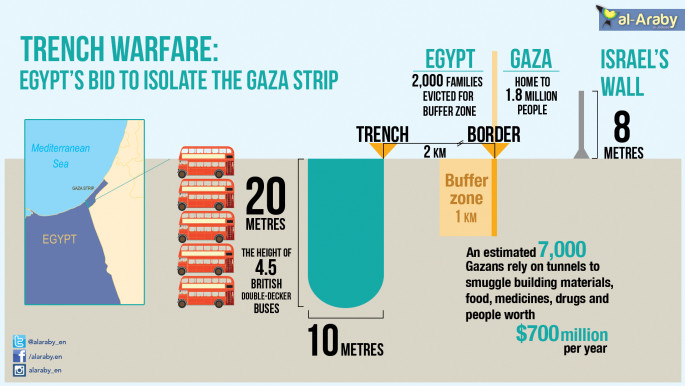Hamas faces threat of Salafist jihadists once more
In a near-unprecedented event in Gaza, a Salafist jihadist blew himself up among a group of Hamas border guards on the Gaza-Egypt frontier last Thursday.
According to a written statement from a group calling itself the Jihadi Salafists, the attack was a statement of intent over future attempts to "wage jihad" on the nearby Sinai peninsula in Egypt.
The group warned the Hamas-led government against harming their "Islamist fighters" attempting to travel into the Sinai.
One Hamas militant was killed in the suicide bombing in Rafah, and Gaza's ruling party vowed to take action against fringe armed "jihadist" groups.
Early on Monday, masked men again attacked a Hamas post in Rafah city, near the border with Egypt, despite several arrests carried out by the Hamas-led internal security forces over the weekend.
Those detained included suspected members of the Salafist Jihadist group, charged with attempts to disturb public order. Hamas considers its crackdown a necessary measure, following recent meetings between Hamas security leaders and Egyptian security officials in Cairo.
The Hamas-Cairo talks have led to the creation of a 100 metre buffer zone running a length of about 15 kilometres along the Gaza side of the Egypt border.
 |
I believe that the security forces here will rein in such fanatical groups |  |
Hisham Saleem is a leading security analyst in Gaza. In an interview with The New Arab, he downplayed Thursday's attack against Hamas.
"It is clear that the Palestinian side is very serious in applying recent understandings with Egypt," he said.
"This [attack] was notable in the way Hamas forces dealt with the jihadist operation against them. The person who committed suicide was 20 years old, and it seems that his mind was filled with an extremist Islamist ideology that has controlled his thinking. He blew himself up among a group of fellow Palestinians, who share with him both faith and citizenship.
"But this incident will not likely be replicated in the region, and I believe that the security forces here will rein in such fanatical groups."
Saleem told The New Arab that the Hamas-led authorities would use intelligence, detentions and even ideological campaigns to fight jihadists in the Strip.
 |
|
| [Click to enlarge] |
"Some of the Salafists, who are considered to be 'moderate', have rejected that kind of [violent] behaviour. I believe that [this attack] is a one-off and will not likely be a frequent phenomenon."
Could a crackdown on jihadist militants lead to a further deterioration of the security situation in Gaza?
"I do believe that all categories of the Palestinian community here in Gaza have a consensus among them that the main enemy is the Israeli occupation," Saleem told The New Arab.
"I believe that the Hamas-led security forces will not allow such a situation to unfold. The security forces will take the lead and prevent it, even if it means losing some of their men. Also, the Hamas-led authorities will make sure to fight them by means of ideology. Some Hamas scholars will be taking the lead in a brain-washing task to fight [the influence of] those jihadist Salafists".
Understanding needed
Hamas authorities should find a way to reach some sort of understanding with Salafist jihadists in both Gaza and nearby Egyptian areas, said Saleem, to relieve tension along the border.
In August 2009, Hamas security forces raided a mosque in Rafah, shooting dead a Salafist scholar, Abdellatif Mousa, and 15 of his followers. Mousa had declared an independent "Islamist Emirate", based on a Salafist interpretation of Islam.
Ever since, Hamas has tightened its grip on Salafist groups, limited their freedom of movement across the Israel-besieged coastal territory.
Political consequences
Thursday's attack came after talks between Hamas leaders and Egyptian security officials led to the first reconciliation between the two since the Egyptian military overthrew Egyptian President Mohamed Morsi - who had been supportive of Gaza's rulers and opened the Rafah border crossing to ease the blockade on the Strip.
 |
It is unlikely that the regime of President Sisi will accept Hamas in the long run |  |
"Hamas' reaction to the attack will likely boost its position with respect to Egypt," said, Adnan Abu Aamer, a Gaza-based political analyst. "This sends a message that Hamas is serious in protecting the border with Egypt."
That said, Egypt's tolerance of Hamas will likely be limited, he said.
"I do not believe that Egypt will accept existence of a Muslim Brotherhood-linked group, as represented by Hamas, near its border. It is unlikely that the regime of President Sisi will accept Hamas in the long run. For the time being, the regime is in contact with Hamas over border security, but long-term, Egypt will only accept the presence of an internationally recognised Palestinian government - mainly one Palestinian representative for the Palestinian people.
"We cannot forget the fact that the current regime in Egypt has deposed the Muslim Brotherhood in Egypt and banned it completely."
Over the past four years, Egypt's Sinai peninsula has seen frequent attacks on Egyptian security forcesand police by Salafist jihadists who have pledged allegiance to the Islamic State group.
Egyptian state-linked media has largely accused Hamas of involvement in the violence. Hamas has, however, rejected such accusations, while Egypt has yet to make public any evidence for its assertions.
The Egyptian military has destroyed hundreds of tunnels used by Palestinians for the smuggling of basic goods and commodities between Gaza and the Sinai, though Cairo has begun to send shipments of fuel and raw building materials into the beleaguered Strip, which is home to nearly two million residents.
Rami alMeghari is a Palestinian freelance journalist living and working in Gaza. Follow him on Twitter: @writeralmeghari



